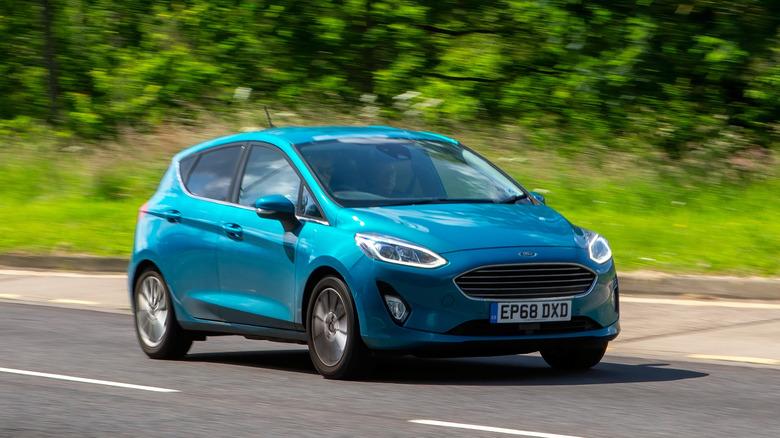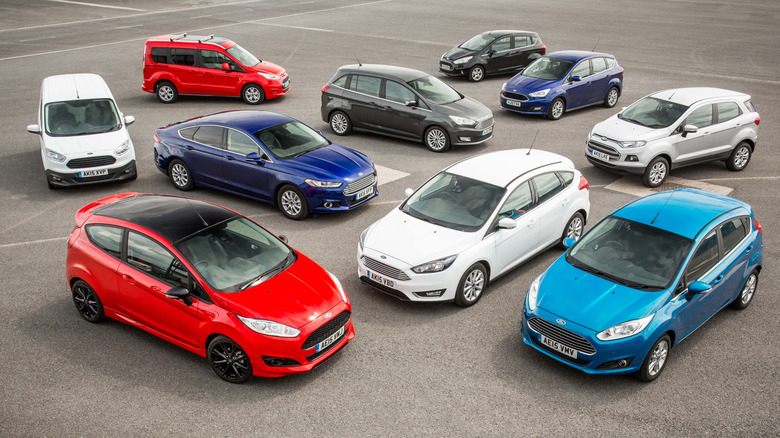Why Did Ford Discontinue The 1.0-Liter EcoBoost Engine?
The Ford EcoBoost engine family is pretty well-known, but the most interesting and smallest of the bunch was the 1.0-liter EcoBoost, which is not available in any car in the U.S. anymore. The EcoBoost has won numerous International Engine of The Year awards. While small, it was quite potent, it was punchy, efficient, but it didn't last too long in North America.
The engine was designed for smaller cars. It debuted in the Ford Fiesta in 2014, but it was short-lived, being discontinued in 2017. There were several reasons for its discontinuation. The EcoBoost was initially only launched with a manual transmission, which reduced its appeal. An automatic was added later, but that didn't help sales pick up. I
t was also more expensive than the equivalent naturally aspirated option, and while it had more power and torque, the gains in fuel economy were minimal. Ford claims that the reason for discontinuing the Fiesta was down to customer demand. Ford eventually decided to discontinue all regular cars in the U.S., except for the Mustang, which meant that even the affordable smaller models were discontinued, killing the 1.0-liter EcoBoost completely. Ford stated that it wanted to focus on trucks and SUVs, along with creating electric vehicles for the American market.
What cars did the 1.0-liter EcoBoost come in?
Ford has now stuffed an EcoBoost engine in almost everything it can. However, the 1.0-liter engine was only meant for smaller cars, and Ford claimed that the engine was the size of an A4 sheet of paper. In the US, it only came in the Fiesta hatchback and sedan, the Focus hatchback and sedan and the EcoSport before being discontinued.
Internationally, this engine is still being used in some models. It's a popular seller in the European market, and you can get it with 48-volt mild-hybrid tech as well: The new mHEV models come with a belt driven starter motor.
It's available in cars like the Ford Puma, Tourneo Connect, and also the Focus, which is still on sale in Europe. Other cars which used the 1.0 EcoBoost were the B-Max, C-Max, Grand C-Max, Transit Courier, and Transit Connect. The 1.0-liter EcoBoost has had its share of common problems over the years, but it's quite a potent engine. There was also great tuning potential on this engine due to it being turbocharged, and thanks in part to having a cast iron block.

